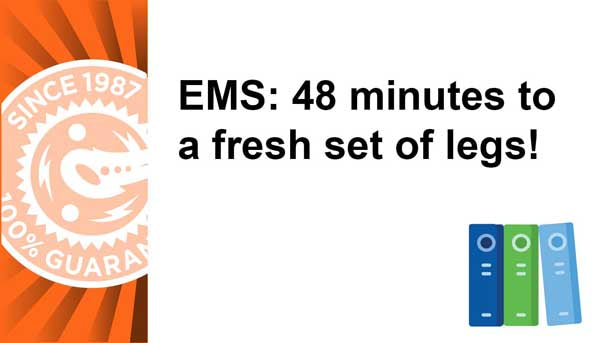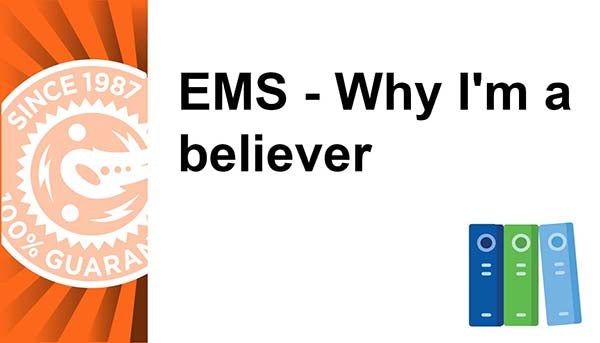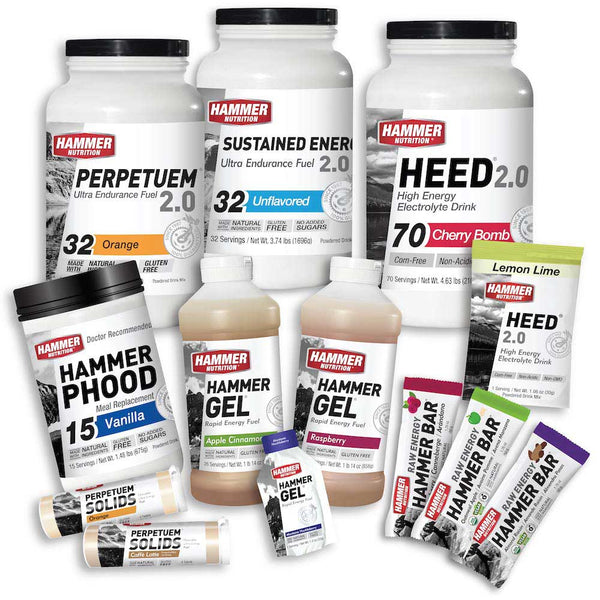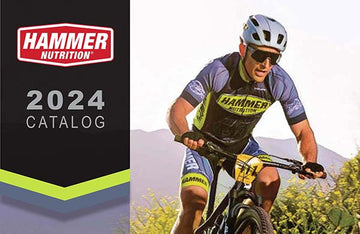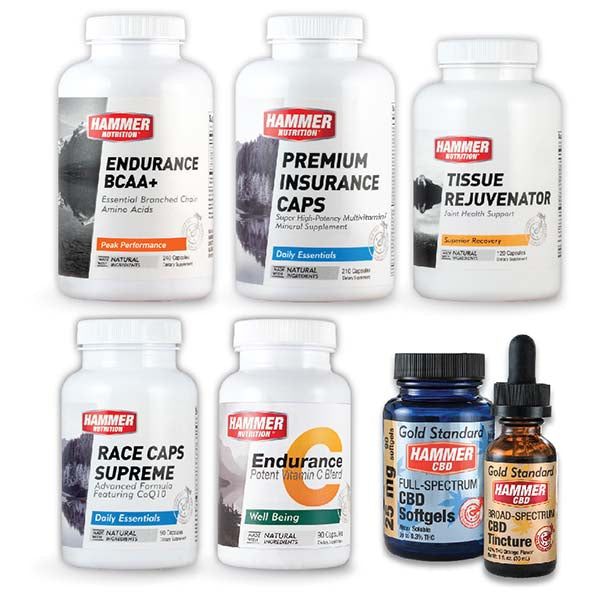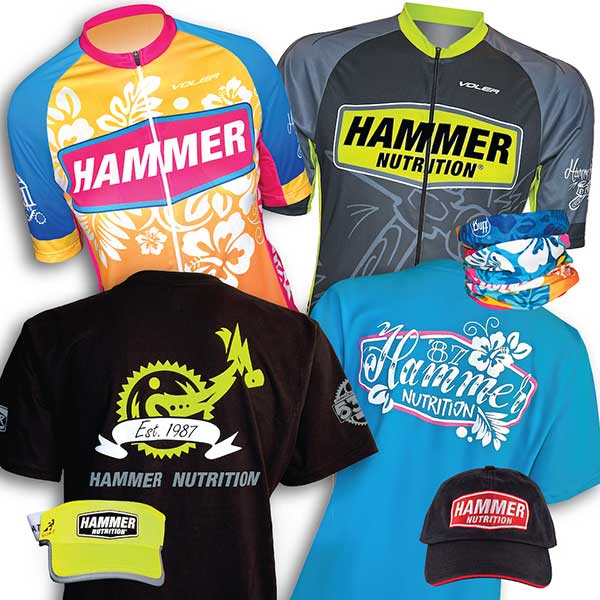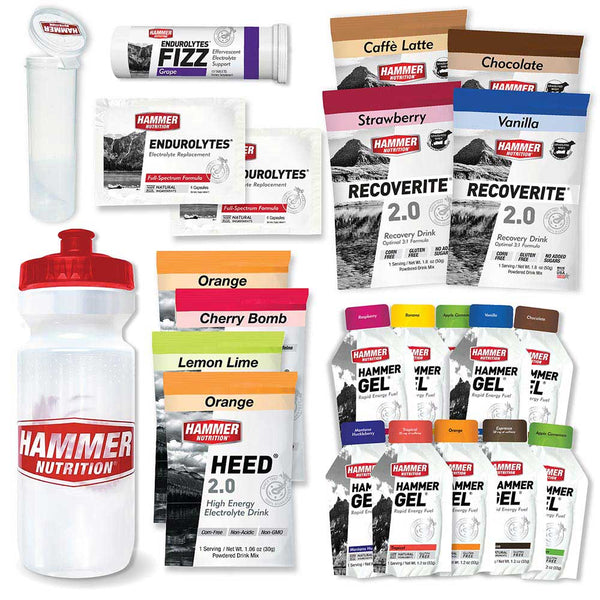
By Steve Born
Hammer peak performance tip: Results don't lie! Thousands of athletes have had breakthrough seasons by following these tried-and-true pre-exercise fueling methods. Make this your breakthrough year! Read on for details...
Few nutrition topics cause as much confusion for athletes as pre-exercise fueling. The recommendations of media "experts" have arguably generated the greatest confusion, and many an athlete has paid a hefty performance price for this misinformation. If you're tired of the confusion and ready to start enjoying higher quality workouts and better race results, consistently apply these time-proven "Dos" and "Don'ts" right away.
1. DO finish all calorie consumption 3 hours before exercise begins. Weeks of consistent high quality training and immediate post-workout refueling builds and maximizes your stores of muscle glycogen, the first fuel your body will use when you begin exercising. You've got a finite supply of this fuel so, naturally, you want to use it as efficiently as possible. Eating sooner than 3 hours prior to the start of exercise promotes faster depletion of muscle glycogen and inhibits fat utilization, the combination of which will devastate your performance.
2. DON'T sacrifice sleep to eat. Muscle glycogen levels remain intact - not one calorie has been depleted - even after a full night's sleep, so it's unnecessary and of no benefit to intentionally wake up early just to eat. Instead, if eating a pre-exercise meal three hours prior is not logistically feasible, consume a small amount of your supplemental fuel, such as Hammer Gel, about 5 minutes prior to the start. By the time those calories are ingested and blood sugar levels are elevated, you'll be well into your workout or race and glycogen depletion rates won't be negatively affected.
3. DON'T overeat. The goal of the pre-exercise meal is to top off your liver glycogen, which has been depleted during your sleep. Accomplishing this doesn't require you to eat 600, 800, or 1000 calories or more, as some so-called "experts" would have you believe. A pre-exercise meal of no more than 300-400 calories is quite sufficient. You can't add anything to muscle glycogen stores at this time (you'll just be topping off liver glycogen stores), so stuffing yourself is counterproductive, especially if youve got an early morning workout or race.
4. DO avoid simple sugars, high fat, and high fiber. Give your body the right fuel, which means complex carbohydrates and perhaps a small amount of protein. Simple sugars (sucrose, glucose, fructose) provide unwanted junk calories; they're not what your body wants nor needs. Also avoid fat-containing and high fiber food; this minimizes the potential for stomach distress as well as an unscheduled bathroom breaks during your workout or race.
5. DO stay properly hydrated. Either of these sensible suggestions will satisfy hydration needs without putting you at the risk for overhydration:
- One liter of water (about 34 oz.) in the 2 hours prior to the start (about 17 oz./hour), ceasing consumption about 20-30 minutes before the workout or race.
- 10-12 oz. of water each hour up to 30 minutes prior to the start (24-30 oz. total fluid intake).
6. DO take your first dose of Endurolytes 15-30 minutes prior. This will cover your first hour's requirements for electrolytes. So instead of reaching for pills when your workout or race begins, you can focus on getting into a nice smooth rhythm.


